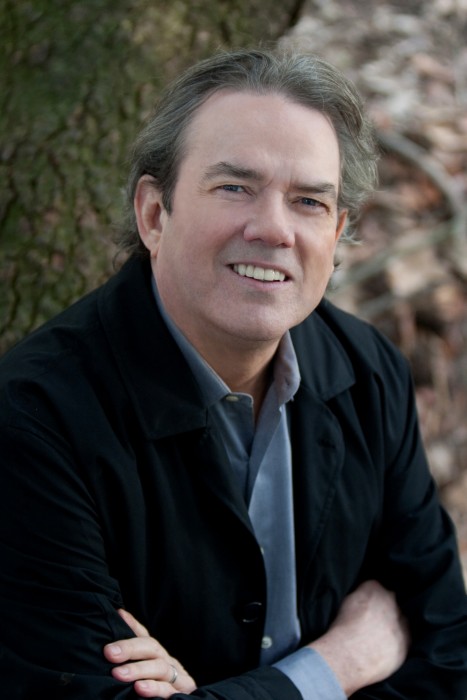
This story appears in our January/February Legends Issue.
Videos by American Songwriter
As far as Greg Johnson is concerned, no state in the union has done a better job turning out songsmiths than Oklahoma.
“The list goes and on and on,” says Johnson. “You’ve got Woody Guthrie, Leon Russell, J.J. Cale, Roger Miller, David Gates of Bread, Hoyt Axton, Kevin Welch, Vince Gill.
Not to mention John Fullbright, the rising young talent Johnson manages – and frequently books into his songwriter-friendly venue, Oklahoma City’s Blue Door. Before Fullbright could sell out the place himself, Johnson had him open for another native son: Jimmy Webb, who’s arguably more renowned than all the others combined, except for Guthrie. (Webb is also an anomaly: the rare household-name singer-songwriter whose hits have all come from others’ renditions of his work.)
“John didn’t really know who he was opening for the first time,” says Johnson, who’s known Webb since attending college with his brother in the ’60s. “That was in 2009,” Johnson continues. “I think he’d heard Webb’s name, and of course he’d heard ‘By The Time I Get To Phoenix’ and ‘Wichita Lineman.’ And he thought, ‘Well, he’s one of Greg’s friends; Greg knows a lot of songwriters, so big deal.’”
Fortunately, as Johnson gleefully recounts, Fullbright, then 21 and just starting his career, got a clue just in time.
“He was at a Billy Joel and Elton John concert in Tulsa with a buddy of his, and Billy Joel goes, ‘Well, if I’m in Oklahoma, I’d be remiss not to send a song out to my good buddy Jimmy Webb, who’s one of America’s greatest songwriters and just happens to be born right here in your good state, ladies and gentlemen.’ And there was a smattering of applause, and John turns to his friend and says, ‘Shit, I’m supposed to go pick him up at the airport tomorrow morning. I didn’t know the guy was that big.’ And then John googles him, and goes, ‘Shit!’”
Apparently, that reaction is shared by many Blue Door performers who spot Webb’s poster and realize they’re trodding the same floorboards as the legend responsible for a half-dozen entries in the Great American Songbook. Hundreds of artists have covered his tunes; Glen Campbell built his career on Webb compositions. Linda Ronstadt and Art Garfunkel are among many who turned Webb songs into signatures. In 1999, BMI ranked “Phoenix” at No. 20 on its list of the top 100 songs of the 20th century; “Up, Up And Away,” the 5th Dimension hit, is No. 43. Considering how many songs have traveled over airwaves since BMI began keeping track in 1939, placing even one on that list is a colossal feat. Writing a song worthy of more than five million plays, as BMI says “Phoenix” has had, is barely imaginable.
There’s more: Webb’s “Galveston” shows up at No. 8 on Country Music Television’s ranking of the 100 greatest country songs. He’s the only artist who’s earned Grammys for music, lyrics and orchestration. The ’80s supergroup of Waylon Jennings, Willie Nelson, Kris Kristofferson and Johnny Cash not only won a Grammy with Webb’s “The Highwayman,” they named themselves after it.
“The Worst That Could Happen” became a million-seller for The Brooklyn Bridge; Art Garfunkel’s first and biggest solo hit was Webb’s “All I Know.” And then there’s the song that, for better or worse, looms largest in his credits list: “MacArthur Park,” which ranks with “Wichita Lineman” as the top two most-recorded songs in his canon.
Ironically, no one would touch it when he wrote it, assuming the 7-minute-plus opus was way too long to get airplay. So Webb recorded it himself, creating a lushly orchestrated instrumental track over which British actor Richard Harris talk-sung verses replete with references to a green-icing-ed park melting in the dark, a cake left out in the rain and a couple “pressed in love’s hot, fevered iron / Like a striped pair of pants.”
Despite lyrics more evocative of a bad acid trip than pre-breakup lunches with a girlfriend, Dunhill wound up releasing Harris’ single and Webb-produced album, A Tramp Shining. The song became the unlikeliest of pop hits, breaking radio’s length barrier. Even more unlikely, disco diva Donna Summer later did what Webb considers the definitive version. And when George Martin produced Webb’s 1977 album, El Mirage, he told Webb the Beatles made sure “Hey Jude” stretched out longer than “MacArthur Park.” (Which would explain why the “na, na, na, na, na, na, na” section seems to last forever.)
“That kind of tickles me,” Webb says, while packing for a recent U.K. tour. “That’s funny, because we never imagined that ‘MacArthur Park’ would be a single. It just took off; it was something that was destined to happen.”
Webb’s literary writing approach and ability to shift styles as easily as he shifts tempos have definitely shaped his destiny; Johnson says he’d be a fan even if Webb hadn’t crystallized heartache into hits with lyrics like “Wichita Lineman’s” And I need you more than want you/ And I want you for all time (a “false rhyme,” its author self-critically notes). “In my era,” says Johnson, “there’s Bob Dylan and Bruce Springsteen and Jimmy Webb. [And] Harry Nilsson.”













Leave a Reply
Only members can comment. Become a member. Already a member? Log in.